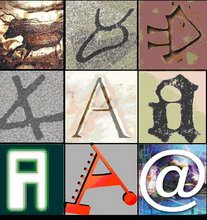Call for Participation
Street Computing workshop at OZCHI 2009
Tue 24th Nov 2009, Melbourne
The Street Computing workshop, held in conjunction with OZCHI 2009, solicits papers discussing new research directions, early research results, works-in-progress and critical surveys of prior research work in the areas of ubiquitous computing and interaction design for urban environments.
Urban spaces have unique characteristics. Typically, they are densely populated, buzzing with life twenty-four hours a day, seven days a week. These traits afford many opportunities, but they also present many challenges: traffic jams, smog and pollution, stress placed on public services, and more. Computing technology, particularly the kind that can be placed in the hands of citizens, holds much promise in combating some of these challenges. Yet, computation is not merely a tool for overcoming challenges; rather, when embedded appropriately in our everyday lives, it becomes a tool of opportunity, for shaping how our cities evolve, for enabling us to interact with our city and its people in new ways, and for uncovering useful, but hidden relationships and correlations between elements of the city.
The increasing availability of an urban computing infrastructure has lead to new and exciting ways inhabitants can interact with their city. This includes interaction with a wide range of services (e.g. public transport, public services), conceptual representations of the city (e.g. local weather and traffic conditions), the availability of a variety of shared and personal displays (e.g. public, ambient, mobile) and the use of different interaction modes (e.g. tangible, gesture-based, token-based).
This workshop solicits papers that address the above themes in some way. We encourage researchers to submit work that deals with challenges and possibilities that the availability of urban computing infrastructure such as sensors and middleware for sensor networks pose. This includes new and innovative ways of interacting with and within urban
environments; user experience design and participatory design approaches for urban environments; social aspects of
urban computing; and other related areas.
TOPICS
This workshop encompasses a broad range of research disciplines. The possible topics for discussion at this workshop are therefore also wide-ranging, and include:
• Ubiquitous computing for urban environments
• People as sensors/ad hoc infrastructure
• Large-scale social interfaces
• User experience and interaction design for the city (e.g., gesturing in the large)
• New and innovative urban interfaces
• Discovering urban computing components
• Urban “mashups”
• Designing for participation on an urban scale
• Development and engineering practices for urban computing
• Design methodologies for urban computing
• Privacy and Policy
WORKSHOP GOALS
Urban computing research draws on fundamental research from disparate fields: HCI, ubiquitous computing, distributed computing, sociology and many others. It is, perhaps, at the cross-section of these fields that the most interesting opportunities for urban computing research lay. The goal of this workshop is to examine the technical developments and social practices within the sphere of “street computing” and identify the really important areas of future research.
Our goals can be summarised as follows:
1. Inspiring presentations. The authors of accepted papers will have the opportunity to inspire, garner feedback
and grow ideas through their presentations.
2. Vibrant open discussion. All workshop participants will engage in an open discussion during which they may draw links between the presented papers, propose directions for future research, suggest non-directions for future research.
3. Identification of research areas. At the end of the day, we will assimilate the workshop findings into a set of
important research questions that we agree must be addressed as a priority.
WORKSHOP FORMAT
The authors of each accepted paper will be allocated time to present their work to the workshop participants. The
duration of each presentation will be decided at a later date. Depending on the number of submissions we receive, it may run for either half a day or a full day. After the presentations, time will be set aside for an open discussion of the particular characteristics of urban environments that make them challenging and interesting from a HCI perspective as well as relevant to urban citizens and urban living. Through this discussion, we will map out a considered and cogent set of research challenges that we can all use both to inform our individual research agendas and to identify potential collaborations. At the conclusion of the day, the Telstra Most Interesting paper award will be announced by the workshop organisers. The prize is a Nokia E51 phone, sponsored by Telstra.
SUBMISSION
The workshop will accept extended abstracts (1-2 pages) for peer review. These abstracts should be submitted to Ricky.Robinson [AT] nicta.com.au on or before 25 September 2009. Authors of accepted abstracts will be asked to prepare a six-page paper in OZCHI format (http://www.ozchi.org/mediawiki/ozchipaper_template2009.doc) and a 20 minute presentation. At least one author of the accepted paper must register for the workshop.
IMPORTANT DATES
• 25 Sep 2009 – Extended abstracts due
• 05 Oct 2009 – Notification of acceptance
• 07 Oct 2009 – OZCHI Early Bird Registration closes
• 06 Nov 2009 – Camera ready full paper due
• 24 Nov 2009 – Street Workshop
ORGANISING COMMITTEE
Ricky Robinson (NICTA)
Markus Rittenbruch (NICTA)
Margot Brereton (QUT)
Stephen Viller (UQ)
Marcus Foth (QUT)
--
Dr Marcus Foth
Senior Research Fellow
Institute for Creative Industries and Innovation
Queensland University of Technology (CRICOS No. 00213J)
Victoria Park Rd, Brisbane QLD 4059, Australia
Phone +61 7 313 x88772 - Fax x88238 - Office K506, KG
m.foth@qut.edu.au - http://www.urbaninformatics.net/
terça-feira, 18 de agosto de 2009
Assinar:
Postar comentários (Atom)


Nenhum comentário:
Postar um comentário